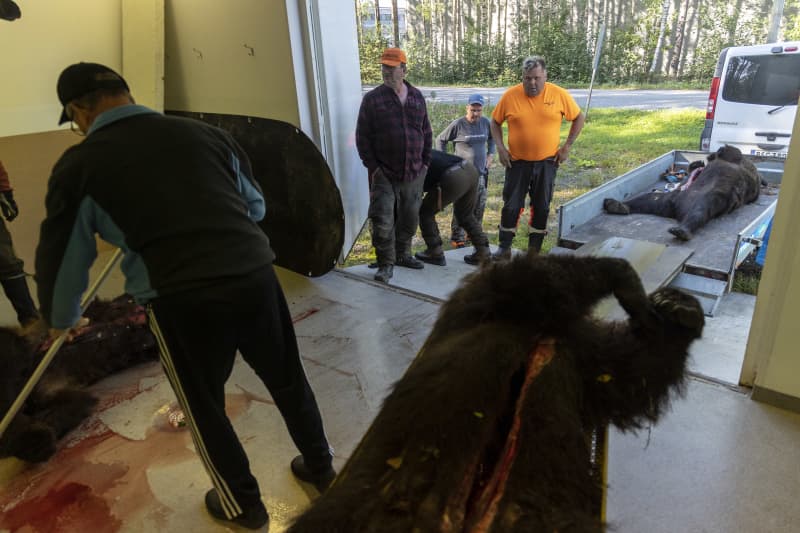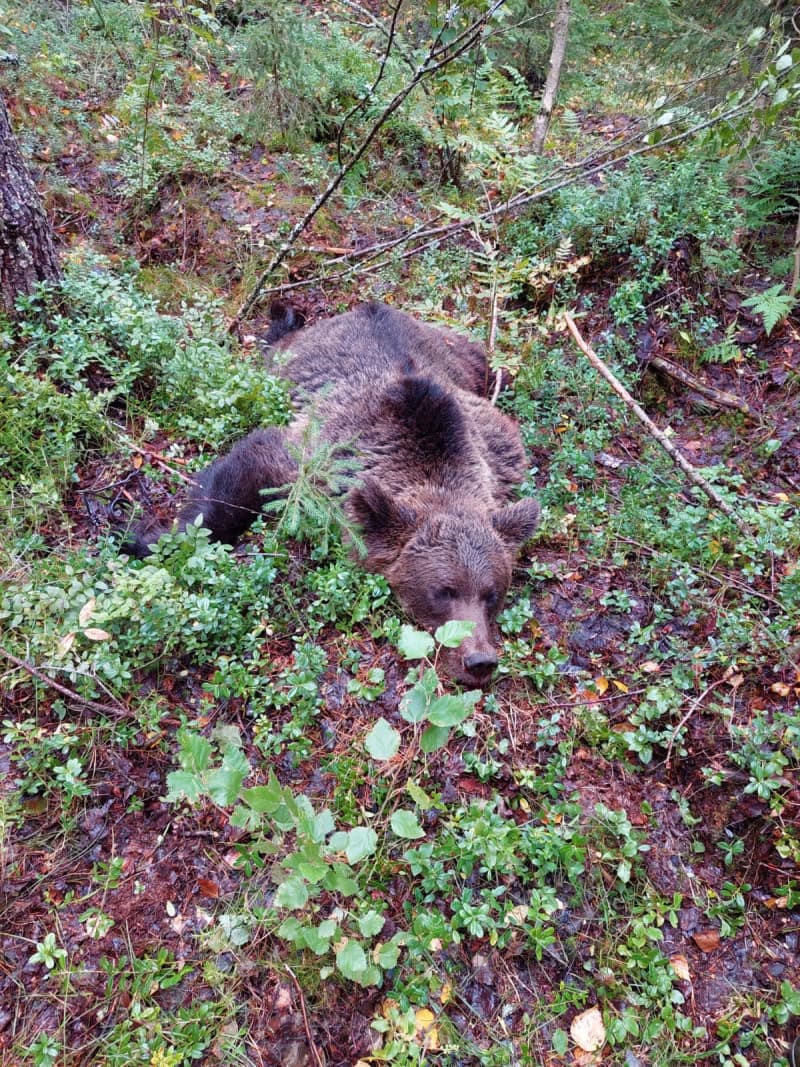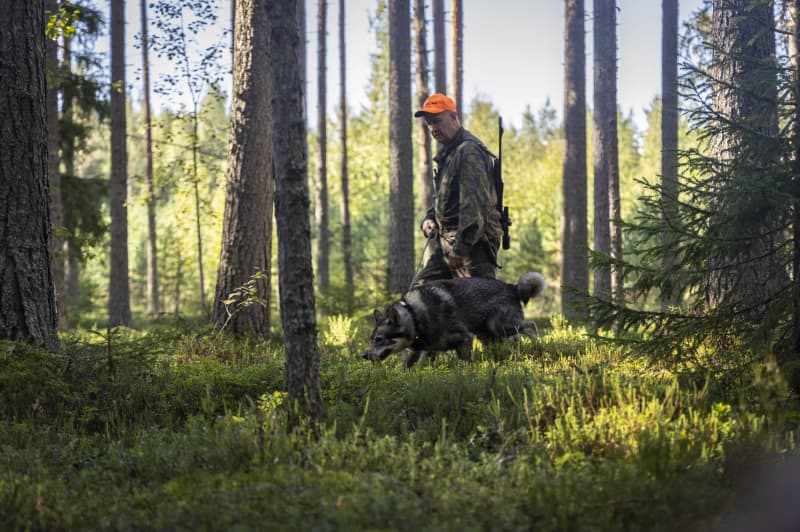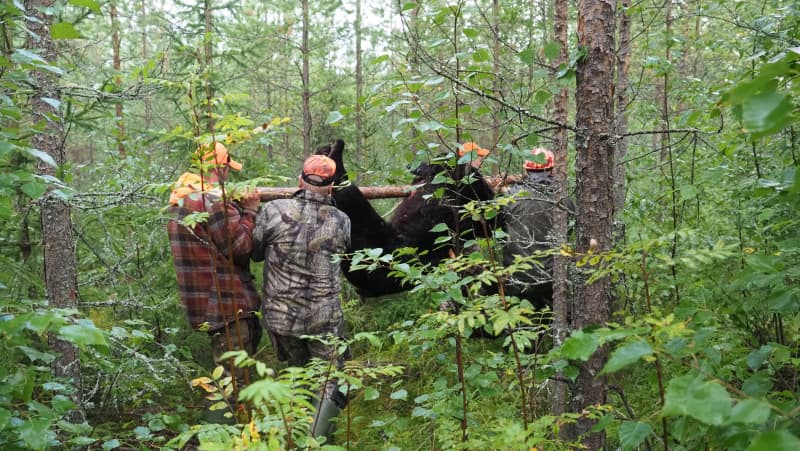
According to the court, the Hunting Act and the EU Habitats Directive criteria for granting exemption permits were not met. Hunters are now guessing that there will be no bear permits next year.
Today, Monday, the Supreme Administrative Court has given its decision on a total of 17 appeal permit applications, which concerned exemption permits for bear hunting granted for the fall of 2022. According to the court, the criteria for permits were not met.
The decisions of the Finnish Game Agency allowed the killing of a total of 111 bears in Kainuu, Eastern Finland and Northern Hämee on grounds of population maintenance. In total, the Finnish Game Center granted 197 exemption permits for bear hunting at that time, and 111 of them were against the law.
Because of the complaints, bear hunting remained low in Eastern Finland in 2022, when administrative rights began to process complaints.
According to the EU Habitats Directive, member states must prohibit the deliberate capture or killing of individuals of some species in the wild. These species include bear, wolf outside the reindeer herding area and lynx.
Deviating from the ban requires three conditions to be met. First of all, there must be a certain basis laid down in the directive for granting an exception. Second, there must be no other satisfactory solution to meet that criterion, and third, the deviation must not endanger the achievement of a favorable conservation level for the species population. If there is no basis, the deviation cannot be based solely on the fact that the stock of the species is viable.
According to preliminary court rulings, the mere fact that stock management hunting would not actually have a harmful effect on the level of protection of the species is irrelevant. All conditions for an exception permit must be met. Adaptive management of the bear population and maintenance of the hunting culture are not, as such, acceptable grounds for deviating from protection.
In the cases that have now been resolved, all exemption permits granted by the Game Center were granted on a so-called position management basis. According to KHO, the cases did not involve the killing of individuals of a strictly protected species enabled by the Habitats Directive, for example for reasons of public safety or to prevent significant property damage.
Already in 2020, after receiving a preliminary ruling from the EU Court, the Supreme Administrative Court resolved the complaints about wolf population management hunting, and in 2022 also the complaint about lynx population management hunting. Due to complaints, the permits in question could not be used.
Exemption permits require more detailed grounds
A bear population that is too dense can cause problems, the solution of which, according to KHO, can only be possible in practice in ways that cause harm to the bear population. So it is not excluded that social problems caused by a dense bear population will be solved by reducing the bear population. According to KHO, this is an acceptable deviation basis that allows hunting.
However, the exception based on Article 16, paragraph 1 of the Habitats Directive can only be applied on a case-by-case basis and only if there is a specific regional problem or situation that needs to be addressed, for example caused by the excessive growth of the bear population.

The Supreme Administrative Court stated that the basis for an exception permit must be a sufficient explanation of the mentioned effects specifically in the area concerning the exception application.
However, in the decisions of the Finnish Game Agency in the matters in question, it was not clearly and precisely revealed which acceptable goal according to the Habitats Directive was aimed at by the exception permit decision regarding bear population management hunting in the application area in question. The decisions of the Finnish Game Agency on the granting of an exception permit were therefore against the law.
The Supreme Administrative Court therefore did not take a position on whether the conditions for the exception permit were met in terms of maintaining a favorable level of protection or the absence of another satisfactory solution.
The permit issuer must change its policies
– There were many such legality problems here, also compared to the preliminary decision given by the EU courts in 2019. When reading the permit decisions, it was clearly possible to state that these are not in accordance with the law.
According to the directive, hunting is the last option in solving problems. According to Tapiola, no proper grounds for this could be found in the justifications for the exception permits. According to Leena Iivonen, the KHO’s decision must be taken into account in the future.
In Riistakeskus, decisions on exemptions are made, and if the decisions of the court, both this and the previous lynx decision, are not taken into account there, then, according to Iivonen, the next step may be a complaint to the EU Court of Justice.
– It makes no sense that year after year complaints are made about permits granted on the same grounds and the same legality problems are noted in them.
Currently, the Nature Conservation Organization in Tapiola is considering appealing the 300 lynx permits granted, because they are subject to the same arguments as in this court decision. According to Iivonen, shooting lynxes and bears is trophy hunting, which is not widely accepted.
– I don’t have a crystal ball, but I would like to see these solutions listed. Yes, at some point, if it seems that nothing has any effect, then at some point we will also start discussing compliance with official duties.
Hunters suspect that future permits will be revoked
According to him, the decision made now makes the hunters suspicious. It may be the case that next autumn all exemption applications will be rejected if there are no grounds for granting them.
– It’s hard to say when you don’t have a crystal ball. But I’m sure it will take winter to go through those arguments. The bear population can withstand hunting, it won’t be caught, but those reasons are a separate matter.

According to Törrönen, permit applicants must familiarize themselves more closely with the terms of the Habitats Directive if they intend to get their application through. It may be that in the fall of 2024 the bear hunt will not take place due to complaints.
– Yes, it is completely possible. When you’ve missed one year already, not one second and two third. Yes, this is such a broad question that the bear population is doing very well at that time. We’ll see how it goes then.
– When you read the conditions for when an exception permit could be granted, in practice there are hardly any such conditions. At least this kind of bear hunting like the current one seems to be ending, that’s what it means.
According to Paasimaa, damage-based hunting can continue, but it should always target a specific individual that causes harm. During the thaw, finding and tracking such an individual can be difficult.
– Fanatic hunting will not be successful in this way.

Marko Paasimaa says that bears have no chance of spreading when they are already everywhere they can be. The stock becomes so big when nature’s carrying capacity meets it.
As an example of the ban on hunting large game, Marko Paasimaa brings up Romania. There, bear hunting was practically completely stopped.
– Bear attacks on people increased radically. Several people die a year, dozens are injured. Bears are killed secretly by the most different means in Romania. Time will tell what happens in Finland.
*Nature conservation organization Tapiola’s comments added to the article at 16:28.*
